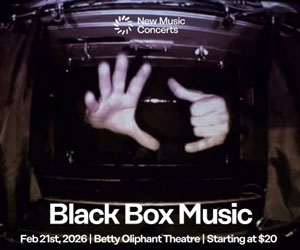It's a rare pleasure to hear Jean-Philippe Rameau played in North America, even though most music played today owes the man a heavier debt than is typically acknowledged. Rameau was a contemporary of J. S. Bach who began his career as a harpsichord virtuoso, composing three books of solo keyboard music, and his compositions for solo harpsichord rank as some of the most difficult and the most rewarding music composed for the instrument. Mid-career, Rameau became a music theorist and, along with Bach, an advocate of equal temperament. Rameau is probably most remembered today for his discovery that tonal music is made up of chord changes rather than intervals between notes, a tenet of music that still remains with us and is a guiding principle of classical, jazz and rock.
It's somewhat curious then, that after considerable success in two separate fields of music, he turned to writing opera at the age of 50, and stranger still that he would continue to do so after his first opera courted controversy and a fairly frosty critical reception.
The reasons some of the French public hated Rameau's operas hardly matter now. His first opera, Hippolyte et Aricie was performed over 130 times during the composer's lifetime, proving once again that there is really no point in listening to critics. But it was certainly a pleasure to hear Voicebox's Opera in Concert series reviving Hippolyte for Toronto audiences Sunday afternoon at the St. Lawrence Centre for the Arts, in a staged production with the help of Toronto's Aradia Ensemble. Despite the fact that it was Super Bowl Sunday, Voicebox managed to draw an audience of over a hundred listeners. Clearly there are a few people in Toronto who either appreciate Rameau's status as the father of modern music or are aware that opera is less tedious, and involves less standing around waiting for something to happen, than professional football.
French opera is hard to do well, and Rameau is not kind to players. Aradia and Voicebox did a fine job of interpreting a difficult composer. Besides having a great band backing them up, Voicebox had a stellar lineup of soloists and a truly phenomenal choir to do justice to an under-appreciated composer. When this company puts on a fully orchestrated production, beautiful music happens. One wish though: the soloists had more than enough volume to dominate the orchestra. Could the band have been bigger? Or at the very least, louder?



